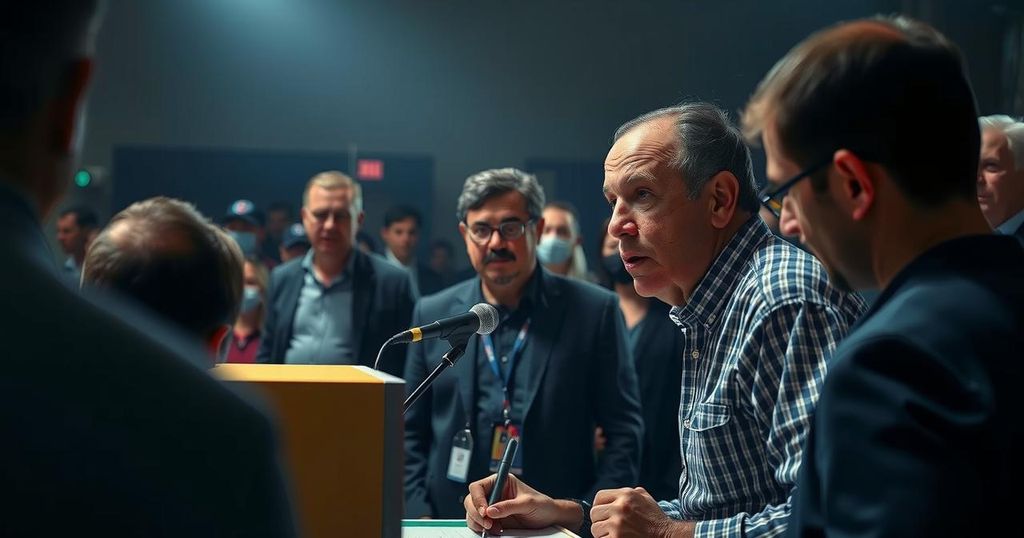Uruguay’s Presidential Election: A Critical Decision in a Moderate Landscape

In Uruguay’s second-round presidential election, voters will choose between center-left Yamandu Orsi and conservative Alvaro Delgado. With polls suggesting a tight race and varying party support, the final outcome may reflect broader trends in regional politics. The election has significant implications for the country’s future direction amidst a stable economic landscape.
On Sunday, Uruguay will conduct a crucial second-round presidential election, pitting the center-left opposition candidate, Yamandu Orsi, against the conservative candidate, Alvaro Delgado. Recent polls indicate a tightly contested race, with a potential margin as narrow as 25,000 votes. Unlike the polarized political climates in neighboring countries, Uruguay’s political landscape is characterized by moderation and a blend of conservative and liberal ideologies. Polling stations will open early in the morning, closing at 7:30 p.m. local time, with results anticipated shortly thereafter.
Orsi, representing the Broad Front, captured 43.9% of the initial vote, while Delgado received 26.8%. Delgado’s coalition benefits from the support of the Colorado Party, which brings their combined influence to nearly 42%. Both candidates are eager to attract voters from smaller parties and those who abstained in the first round, recognizing the significance of this segment.
Despite a promising economic backdrop, which may favor Delgado’s campaign, analysts highlight that there is little demand for radical political change among the Uruguayan electorate. Experts will be watching closely, as this election could reveal whether Uruguay will diverge from the broader trend of declining support for incumbent administrations observed worldwide due to inflation and rising living costs.
Uruguay, a nation of 3.4 million, is known for its stable political climate and progressive social policies, including the legalization of marijuana. The upcoming presidential election marks the conclusion of a significant electoral year in South America, where many countries have experienced contentious elections, often characterized by sharp left-right divides. This election is particularly notable for its moderate contenders and the relatively calm political dialogue, emphasizing continuity rather than drastic change in governmental policy.
In summary, the Uruguayan presidential runoff presents a unique political scenario marked by a moderate approach amidst a global trend of electoral volatility. The outcome will not only determine the next president but will also reflect the electorate’s sentiment regarding economic stability and policy direction. As such, the election promises to be pivotal in shaping Uruguay’s future, particularly in a year filled with high-stakes elections across the region.
Original Source: www.ndtv.com






